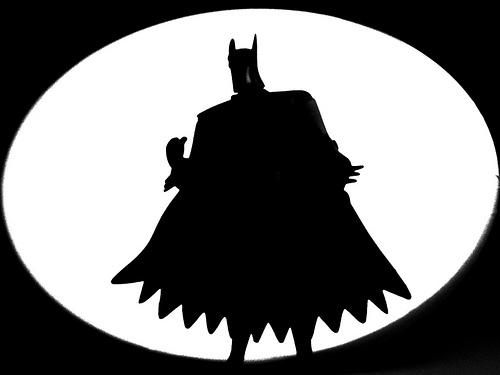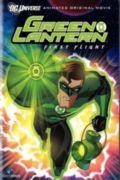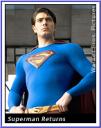What makes a hero? Courage, intelligence, cool thinking in hot situations? That’s typically what people think of as the raw material for a hero. But I’d like to offer an alternative opinion: What makes a hero is irrationality and madness. Being a hero involves taking an action that doesn’t make sense. If it made sense, it wouldn’t be heroic; it would be logical. Often, when the press interviews someone who’s done a brave thing, such as run into a burning building to save someone’s life, his or her comment afterwards is to the effect, “I acted without thinking.” When people jump into the water to save someone from drowning, they risk their own life. The mental calculus is a sure loss of one life vs. a possible loss of two lives. What is logical? Well, it depends on the likelihood of success. If there is a very high chance (Olympic swimmer to the rescue), then the action is logical and not heroic. If there is a low chance, then the action is heroic but very foolish and not rational. In other words: Crazy.
Who are the superheroes? The modern archetype is Superman or Batman. These heroes are larger than life. Superman was literally superhuman (or super-non-human, actually, as he was born on the doomed planet Krypton) and Batman was the son of rich doctor and became a millionaire industrialist. Consider Spider-man, skinny teenager bitten by a radioactive spider and somehow imbued with the power of a spider. A less well-known hero is Green Lantern, who was actually part of an interstellar police force organized by the Guardians of the Galaxy to patrol the universe. According to the origin story, an alien Green Lantern crashes on earth and sends his power ring on a mission to find a man without fear. Green Lantern’s power takes the form of a green ring that holds a tremendous reserve of green energy.
What do these superheroes have in common? They are all mentally disturbed.
Superman is actually Kal-El, a child is rocketed to earth by his parents just as his entire planet explodes.  Kal-El becomes Clark Kent, who, in turn, becomes Superman. What is probably Clark’s sole motivation in life? To atone for surviving the death of his home planet. When he’s not saving the world, Kal-El/Clark/Superman delights in hiding behind these different identities and sets up a love-hate relationship with Lois
Kal-El becomes Clark Kent, who, in turn, becomes Superman. What is probably Clark’s sole motivation in life? To atone for surviving the death of his home planet. When he’s not saving the world, Kal-El/Clark/Superman delights in hiding behind these different identities and sets up a love-hate relationship with Lois
Lane.
Batman is, in reality, Bruce Wayne, who saw his parents murdered as a child. He explicitly devotes the rest of his life to fighting crime, to avenge the death of his parents. Dressed as a giant bat, no less!!!
Spider-man initially plans to turn his superpowers into a gravy train by appearing on the Ed Sullivan show as an acrobat. He is too self-focused to bother to stop a criminal who ultimately murders his Uncle Ben. When Spider-man realizes the cruel twist of fate, he devotes the remainder of his life to fighting criminals (“with great power comes great responsibility”).
As a man without fear, Green Lantern is probably clinically insane. Fear is a normal response to danger. Without fear, what is to stop Green Lantern from walking into a hail of bullets or jump into a lion’s cage?  Without the fear of repercussions, what stops him from stealing money, or raping women? With the power ring, he would be unstoppable: An imposing force without a care in the world.
Without the fear of repercussions, what stops him from stealing money, or raping women? With the power ring, he would be unstoppable: An imposing force without a care in the world.
Generally, we think of a hero as a figure deserving of admiration. We assume that heroic behavior is motivated by a positive human emotion or noble characteristic. But in reality, people do what appear to be good deeds for self-aggrandizing reasons. Are sports figures heroes, or opportunistic individuals trying to make a buck by exploiting a skill they possess? Are police officers and fire fighters heroes or civil servants trying to make a living to pay on a mortgage? With a modern mass media system, everyone knows that a good deed can be spun into a series of appearances on talk shows and ultimately a book deal.
There is a thin line between hero and crazy person (Beggan, Gagne, & Allison, 2000). When we set up our children to admire heroes, what are we really teaching them? To self-aggrandize, to take careless risks, to disregard logic? Is that really what a hero does?
– – – – – – –
Jim Beggan was born in Buffalo, NY, spent five years in graduate school in Santa Barbara, and has lived in Louisville, Kentucky for over twenty years, where he is an associate professor of sociology at the University of Louisville. As a kid, he developed an interest in comic books, initially a fan of DC comics but eventually a fan of Marvel. He still remembers the glory days when Captain Marvel gained cosmic awareness and became at one with the universe. Currently, he teaches courses on human sexuality, statistics, and self and society. When he is not teaching or doing research on exercise videos, he does the Insanity workout videos, walks on a treadmill, and swing dances in the vintage style. At the moment, he is working on his balboa technique.
References
Beggan, J. K., Gagne, P., & Allison, S. T. (2000). An analysis of stereotype refutation in Playboy by an editorial voice: The advisor hypothesis. Journal of Men’s Studies, 9, 1-21.

No one ever said that heroism was rational, only that it was extraordinary. By definition, extraordinary acts are not performed with ordinary rules of rational action in mind, and we’re glad for that fact. What’s rational at the individual level is often selfish; what’s rational at the collective level is often selfless and therefore (from the rational actor model) seemingly crazy.
Let’s hear it for heroic irrationality!
There may actually be an basic instinctual bases for heroism though. Humans are basically gregarious animals. We live in social groups of varying sizes and that necessitates that we basically look out for each other. Our social cohesion requires it.
Think about it: If some does something heroic and says that they didn’t think about it THEN WHY DID THEY DO IT? It has to be instinctual. Part of us is perceiving a threat to our social group and tells us to do something about it. So I don’t think simply attributing heroism to some kind of counter-intuitive mental illness is accurate.
Very thought-provoking essay (and tongue-in-cheek, I assume ;)). I actually believe that the basis for heroism is the synergy of empathy and rationalism. Empathy allows us to feel the pain and fear of others, and our rational mind drives us to fix the problem.
I think you bring up an interesting point when you say there is a thin line between a hero and a crazy person. I would maybe add to this by saying there is a thin line between a hero and a villain. I think both heros and villains poses the same irrational daring behavior mentioned in this blog but one uses it for good and the other evil. As you touched on with the example of the Green Lantern what is to stop him from stealing or raping woman given all his power. I think heroes and villains follow very similar paths in their creation. Following Campbell’s model of heroism I think both heroes and villains follow a similar path of achieving a boon or power. Heroes however, complete their journey using their new found skill to better society and villains diverge by using their boon to selfishly better themselves at the cost of others.
A hero, at least in the sense of a superhero, is undoubtedly a little crazy, but I think that is part of the appeal. If you look at the lengths people go for entertainment (racing cars, jumping out of planes and off bridges, etc), you’ll see that everyone craves the insanity of a thoughtless action every now and then. Heroes, however, get to embrace that rush of doing something dangerous and illogical on a daily basis.
While it sounds like an injury waiting to happen to some, deep down we all just want a little adventure, and we admire and envy heroes, whose day to day life is an adventure in itself.
I agree with Scott, they are born to be different that solve certain problems…
Very well done. The essay aptly identifies the similarities between a hero and a crazy person, which is usually lost on people.